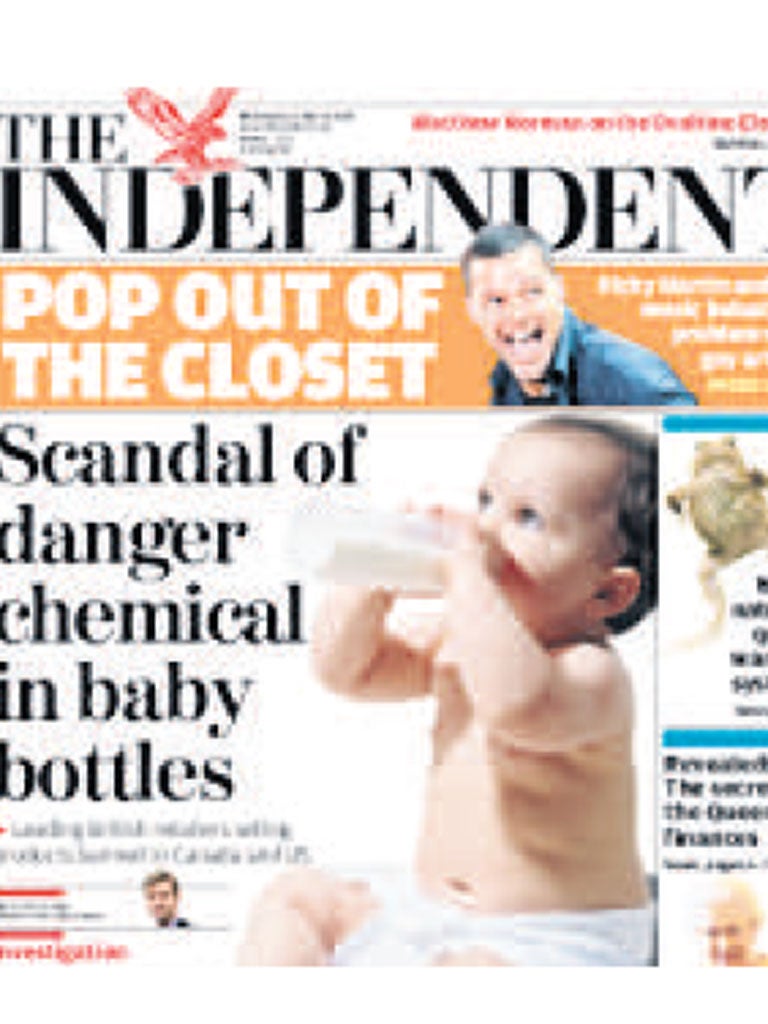Britain to fight landmark ban on chemical linked to cancer
French plan to outlaw BPA in food packaging comes after campaign to ban it from baby bottles

Britain and other EU member states are opposing a new law which would ban a common chemical which has been linked to breast cancer, heart disease, obesity and other conditions.
The UK, the Czech Republic, the Netherlands, Italy, Slovenia and Spain have objected to a French plan to ban bisphenol A, or BPA, from food packaging by 2014, saying the move – arising from a hazard assessment by France's Agency for Food, Environmental and Occupational Health and Safety – would breach trade rules. In Britain, the BPA is deemed to be safe by the Food Standards Agency. The UK has told the European Commission the draft French law does not follow sound science.
Elizabeth Salter Green, director of the pressure group Chem Trust, said: "The UK is trying to scupper the French ban, but it is not alone. Many member states seem to want to stop the French initiative. I feel this is very much a reflection of what industry wants. The UK does not manufacture BPA, but we do use it a lot in consumer products."
The row is the latest twist in the scientific and political dispute over the plastics hardener, which mimics the female hormone oestrogen – and is found in televisions, mobile phones, flooring, dental sealants and the plastic lining inside food and drink cans.
Peer-reviewed scientific studies have found that in animals BPA increases cell mutations associated with the development of cancer. Studies have also found that humans with high levels of the chemical have more heart disease. Links have also been made between BPA and obesity and diabetes. However, industry groups insist BPA is safe, and scientists are divided as to whether it is harmful.
Regulators around the world take differing views. In 2010, the US Food and Drug Administration began supporting efforts by manufacturers to remove BPA from baby bottles and infant feeding cups and to replace it in food-can linings; but this year the FDA rejected an outright ban in food packaging, saying the science was still uncertain.
The European Commission banned BPA from baby bottles in 2011, but the European Food Safety Authority has concluded consumers are not at risk from exposure to BPA leaching into food, and has criticised the methodology of scientific studies concluding otherwise.
Heinz and Campbell's, two of the world's biggest food manufacturers, are publicly committed to removing BPA.
France's Health Minister Xavier Bertrand has backed the ban, which was proposed by Michèle Delaunay, a doctor and member of France's Socialist Party, who warned that the chemical could be behind cases of young girls prematurely developing breasts.
In September last year, Ms Delaunay said: "The chemical poses other risks. It can be responsible for obesity, cardiovascular diseases and could possibly increase the risk of cancer."
Join our commenting forum
Join thought-provoking conversations, follow other Independent readers and see their replies
Comments
Bookmark popover
Removed from bookmarks